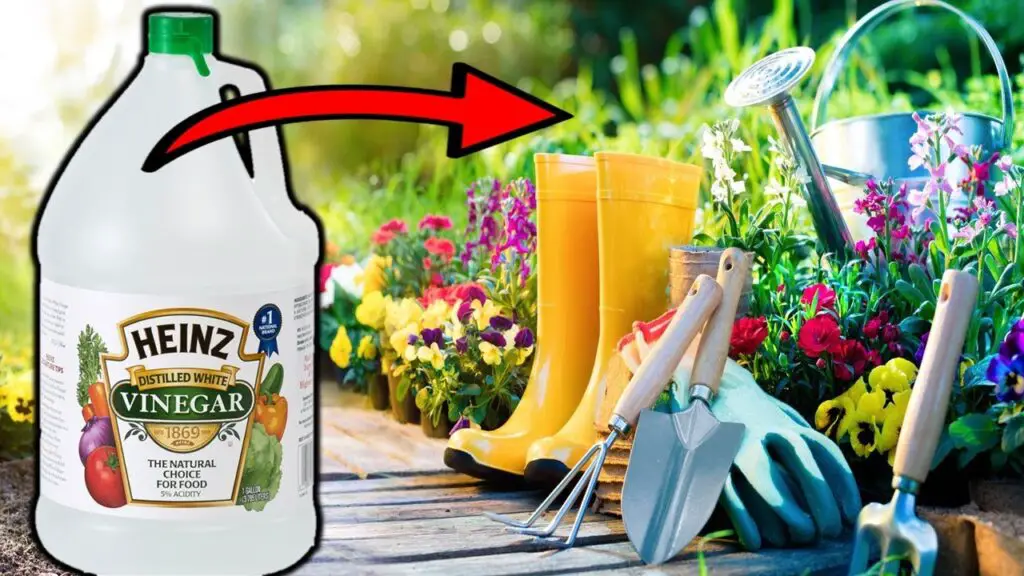Vinegar isn’t just for putting on fish and chips anymore. It’s a versatile fluid that can work to clean bathrooms and kitchens, as well as adding a delicious extra touch to our meals.
While some people don’t particularly enjoy the strong vinegary after-scent, that’s easily dealt with. Simply add a few drops of your favorite essential oil to mask the vinegar smell.
Vinegar is a handy tool in the house, and it’s also a growing trend in the gardening community. However, you might worry about the effect that vinegar could have on your precious plants. So, should you add distilled vinegar to your gardening routine or not? What are the benefits? More importantly, what are the most effective uses for vinegar in the garden? Let’s find out.
Why Use Vinegar in Your Garden?

Gardening is meant to be a relaxing, rewarding hobby. Not only does your yard and garden space look beautiful after you’ve finished, but you find yourself feeling refreshed and happy, at one with nature.
Using a selection of powerful chemical sprays doesn’t really lend itself to feeling at one with nature. Most, if not all of these chemicals are harmful, both to you and any pets you might have. They can be expensive, and they don’t always work. Or they might work, but your plants and the wildlife suffer along with it.
Unfortunately, most of us don’t have the option to simply skip any kind of herbicide or pesticide. Pests, weeds, or fungi can wreak havoc in a well-tended garden. If you prefer a safer, more natural way to maintain your yard, you should consider using white vinegar in your garden.
Vinegar has the double benefit of being free from harmful chemicals, as well as being cheap and easily accessible. If you’re revamping your garden on a budget, using vinegar instead of harmful, expensive chemicals could be the right way to go.
Top Vinegar Uses
There are a number of uses for vinegar in the garden. Because vinegar is versatile, it can be used in many different situations. Today, we’ll just take a look at eight of them.
Organic Weedkiller
Weedkillers can be expensive, and very bad for the environment. Getting rid of stubborn weeds isn’t easy. Some weedkillers, however, can quickly kill the offending plant - and everything else around it.
Fortunately, white vinegar can make a cheap and easy weedkiller. Start by mixing around a gallon of white vinegar with one cup of salt and a few tablespoons of dish soap. Stir well, until all the salt is dissolved. Then you can add the mixture to a spray bottle.
It’s wise to be careful when spraying vinegar around certain delicate plants, as they can suffer from too much distilled vinegar. However, a few applications of your new weedkiller can shrivel those weeds right up.
Fruit Fly Repellent
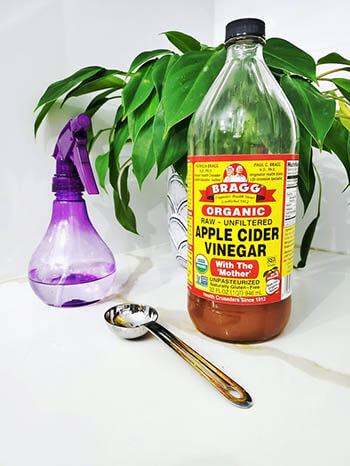
You can use vinegar in the garden to create a tempting trap for fruit flies. The only way to keep these little beasts away from your fruits and veggies is to trap them. You can do this by mixing apple cider vinegar and dish soap. Put the mixture in a pot that the fruit flies won’t easily climb out of.
Attracted to the scent of vinegar, fruit flies will climb into the pot and get stuck in the dish soap.
Ant Repellent
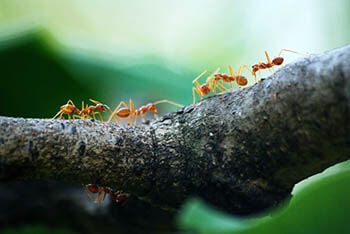
Few things can ruin a nice, sunny day in the garden than a horde of marauding ants. Fortunately, ants hate the smell of vinegar.
Mix up a spray bottle with a cup of water and 1 cup of white vinegar. To get rid of the ants, spray the mixture directly onto the little critters.
You can also use this white vinegar mixture as a deterrent. Spray the vinegar mixture anywhere in your house and garden that ants are gathering, and this should keep them well away.
As an added bonus, half a cup of white vinegar or apple cider vinegar can also get rid of slugs and snails.
Organic Cleaning Product
White vinegar is a hugely popular cleaning product, used in many kitchens and bathrooms. This is largely due to how effective it is, as well as how cheap, accessible, and easy to make it can be.
You can use vinegar in the garden for cleaning purposes, too.
Cleaning terracotta and clay pots
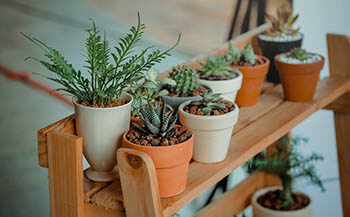
Terracotta and clay pots are best for potted plants. This is because the clay is more durable, allowing the soil to breathe. Clay pots are all porous, allowing for better drainage. However, clay also gets dirty in the garden, and can be difficult to clean, due to its absorbent nature.
Cleaning rusty garden tools
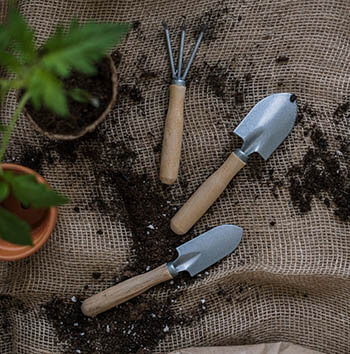
Cleaning rusty garden tools can be tricky. Start by thoroughly covering the tools with undiluted vinegar. Better yet, let the tools soak in the vinegar. Let them sit for a few minutes, or a little longer if you prefer.
Then, use a mixture of equal parts vinegar and water to spray and wipe down the tools.
Cleaning outdoor furniture
To spruce up your garden furniture for the summer seasons, using vinegar can help give it a good clean. Use a cloth soaked in vinegar to wipe down your outdoor furniture. This should clean rust away and add shine. Alternatively, use your trusty vinegar and water bottle to clean the garden furniture.
Bird baths
Bird baths get dirty very quickly. Aside from looking unpleasant, dirty bird baths can pass on bacteria and infections to unsuspecting birds. Cleaning out the bird bath is nobody’s favorite chore, but a mixture of pure white vinegar and water can get rid of stains and keep your bird bath looking fresh.
Use this mixture once a week. Staying on top of your bird bath maintenance will make the job much easier.
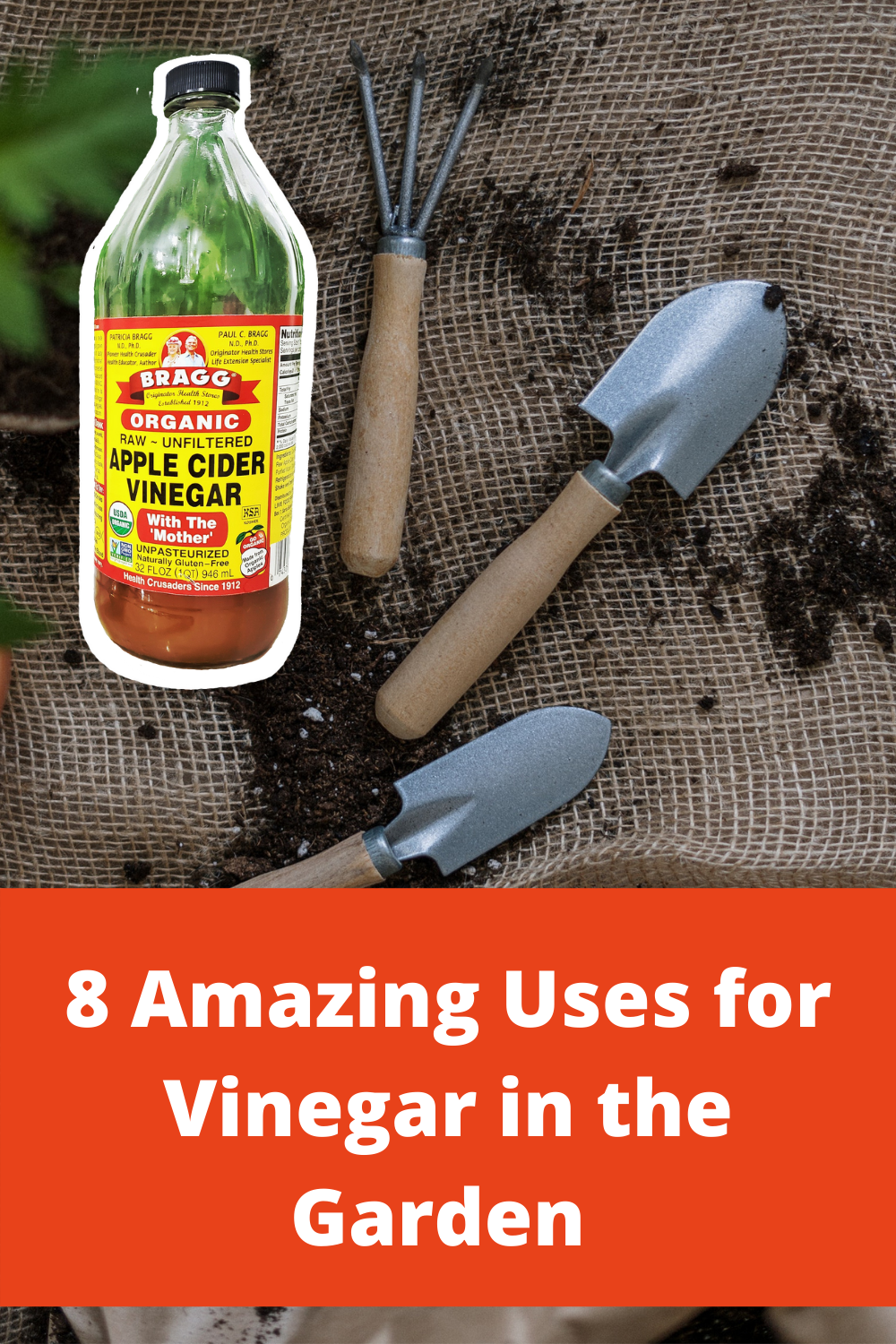
Flower Refresher
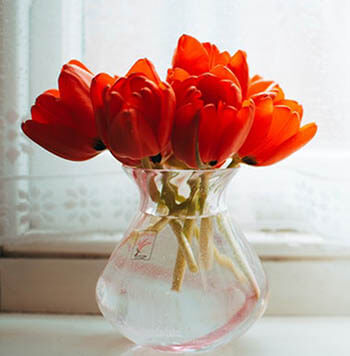
One of the benefits of keeping a beautiful garden is that you can bring sweet-smelling bouquets of flowers inside to enjoy. However, these flowers begin to wilt very quickly.
Surprisingly, you can use white vinegar to help your fresh flowers perk up. Take around half a gallon of water, and mix it with two tablespoons of sugar and two tablespoons vinegar. Stir well. Put this mixture in a vase, and place your flowers in the vase, so that the cut part of the stems sit in the water.
For best results, you should keep changing the mixture, ideally every few days.
Animal Repellent
We all love wildlife, although possibly not when it’s rampaging through our vegetable patch. Cats, dogs, raccoons and rabbits are all lovely, but these animals can do a lot of damage to a lovingly tended garden.
Soaking items in distilled white vinegar and placing them strategically around the perimeter of your garden can be a good way to keep animals away from your garden. Since most animals don’t enjoy the smell of white vinegar, the smell works as a deterrent without causing any unnecessary distress or hardship to the animal.
Anti-Mold Spray
White vinegar is also an effective fungicide. This means that you can use it to get rid of mold and fungus on your plants.
Of course, you need to be careful, as too much white vinegar can damage your plants themselves. Mix 1 cup of chamomile tea with two teaspoons of vinegar. Mix well, and add the mixture to a bottle. Gently but thoroughly spray any affected plants with the mixture. It should kill the mold or fungus, as well as any calcium buildup, without hurting your plants.
Cleaning Fresh Vegetables
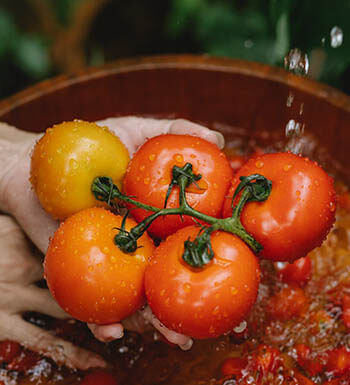
Few things are more satisfying than eating your own home-grown vegetables. You’ve grown these veggies from seeds, and you know that there are no harmful chemicals, herbicides, or pesticides on them!
However, there could still be lingering bacteria on the vegetables. A quick rinse probably won’t cut it. Fortunately, you can use white vinegar to safely and organically clean your vegetables, too.
Combine about a quart of water with a tablespoon or two of white vinegar. Wash your vegetables in the mixture, and if you don’t like the vinegary taste, rinse them in clean water afterward.
Will Vinegar Damage my Plants?
An avid gardener might worry about the effect vinegar would have on their greenery. After all, vinegar is acidic. Does that mean that it could hurt your plants, just like it can kill weeds?
Simply put, yes. However, white vinegar is less harmful than a chemical-rich herbicide or pesticide. It’s an organic mixture, and so long as you’re careful, your plants should be fine. Here are a few things you should avoid when using white vinegar in the garden and around your plants:
- Don’t use undiluted vinegar in most cases. Follow the recipe given, with recommended ingredients.
- Don’t spray the solution directly on plant leaves and stems.
- Don’t use a lot of vinegar regularly, for a long period of time. Too much vinegar for too long will kill your plants.
The best method of using vinegar is to mix it with warm water in a spray bottle. Then you can use the bottle to gently mist vinegar around the area. Pay attention to your plants. If you think your use of white vinegar in the garden is damaging them, it may be time to try something else in your garden.
While using white vinegar isn’t always a straightforward process, it’s a vital ingredient to an organic garden. If you have small children or pets, vinegar is a much safer pesticide, herbicide, and fungicide than any chemical options.
So, what are you waiting for? Grab the vinegar bottle, and get started!

